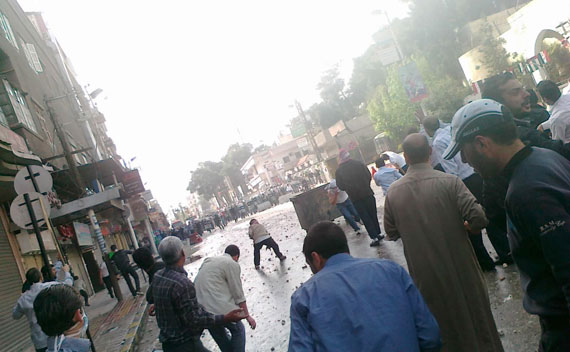Turkey: Speaking Truth to Power
More on:

My old friend Suat Kinikloglu recently penned an op-ed in the English language daily, Today’s Zaman, called “Questioning Turkey’s ‘doves’ on Syria.” It is one of the most interesting articles on Turkey and its Syria problem that I have read since the uprising against Bashar al Assad began last March. Suat, who entered parliament as an AKP backbencher in 2007, rose to become the spokesmen of the Grand National Assembly’s foreign affairs committee, the party’s deputy chairman of external affairs, and chair of the Turkish-American Inter-Parliamentary Friendship Group. He was left off AKP’s parliamentary list for the June elections. From my perspective, the party is worse off for it. When Suat was in parliament, he was a loyal soldier to the AKP cause and became an influential voice, but he was never a hack. His piece on Turkey and Syria is a subtle critique of the government’s present approach to Syria, warning that Turkey’s continued “caution” as Assad brutalizes his own people will necessarily diminish Ankara’s influence and compromise its efforts to build a new regional order.
Moreover, Suat’s call for Turkey to defend human rights and Syrians’ desire for freedom—concepts that he freely admits Turkey has, at times, not excelled at—is long overdue. Indeed, why are the Syrians different from the Israelis? When the Israelis were whomping on Gaza in late 2008 and early 2009, Prime Minister Tayyip Erdogan was engaged in an overwrought display of emotion over the damage the IDF was inflicting on Gaza, but so far Erdogan hasn’t paid a weepy visit to Syrian refugees. In all fairness, the prime minister has called the Syrian siege of several towns brutal, but Suat’s desire for Ankara to live up to its professed values, (perhaps unwittingly) exposes a central contradiction in Turkish foreign policy under the AKP. For all of Erdogan’s moral outrage with regard to Israel, charges of European hypocrisy, and rhetoric about Turkey’s ability to help lead the Middle East toward a democratic future, Ankara has actually demonstrated a paucity of moral values when it comes to people like Omar al Bashir, Muammer Qadhafi, and Assad—three of the most repugnant autocrats in a region rife with murderous thug-ocracies.
Perhaps the sweetest part of the op-ed was Suat’s critique of Turkey’s “Iran lobby.” It is hard to grasp that with Iran’s malevolent role in the region and the threat Tehran’s ambitions pose to Turkish interests there was an influential group of Turks who believe that Ankara’s future lies with Tehran. It is harder to fathom that even after the Syrian crackdown began—with considerable Iranian assistance—there are still serious people in Turkey who think this way. Of course, there is a perfectly rational economic argument for Turkey to seek good relations with Iran—if present projections are to be believed, the Turks are going to need a lot of gas in the coming decades and some argue that the Iranians, already an important source, are likely to play an even bigger role supplying Turkey’s growing thirst for energy. Still, as Suat nimbly implies, there are times when ideas are more important than economic calculation. Ankara and Tehran clearly do not share the same values and thus are not appropriate partners.
It is about time someone with AKP street cred critiqued AKP’s approach to Syria and the Arab uprisings writ large. I suspect it hasn’t made Suat very popular among his former colleagues, but that is why it is important. A little bit of truth to power in AKP circles is a healthy development. Way to go, Suat!
More on:
 Online Store
Online Store